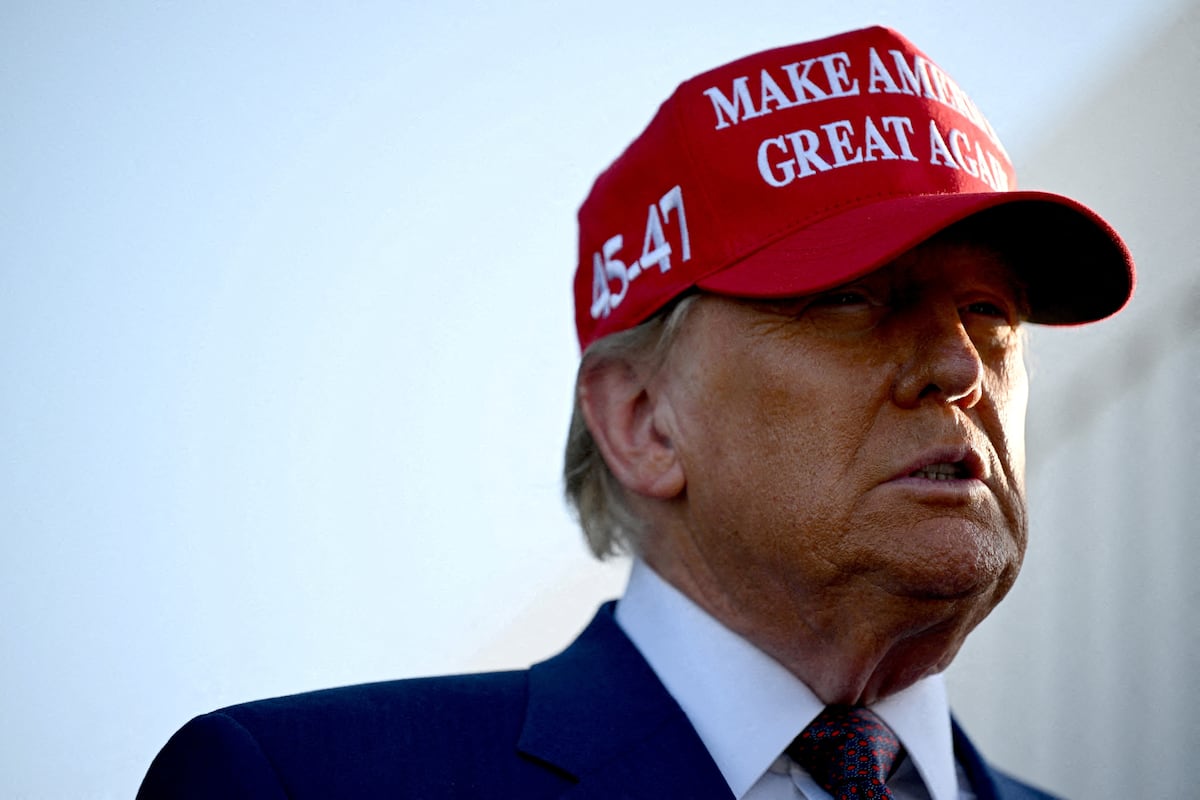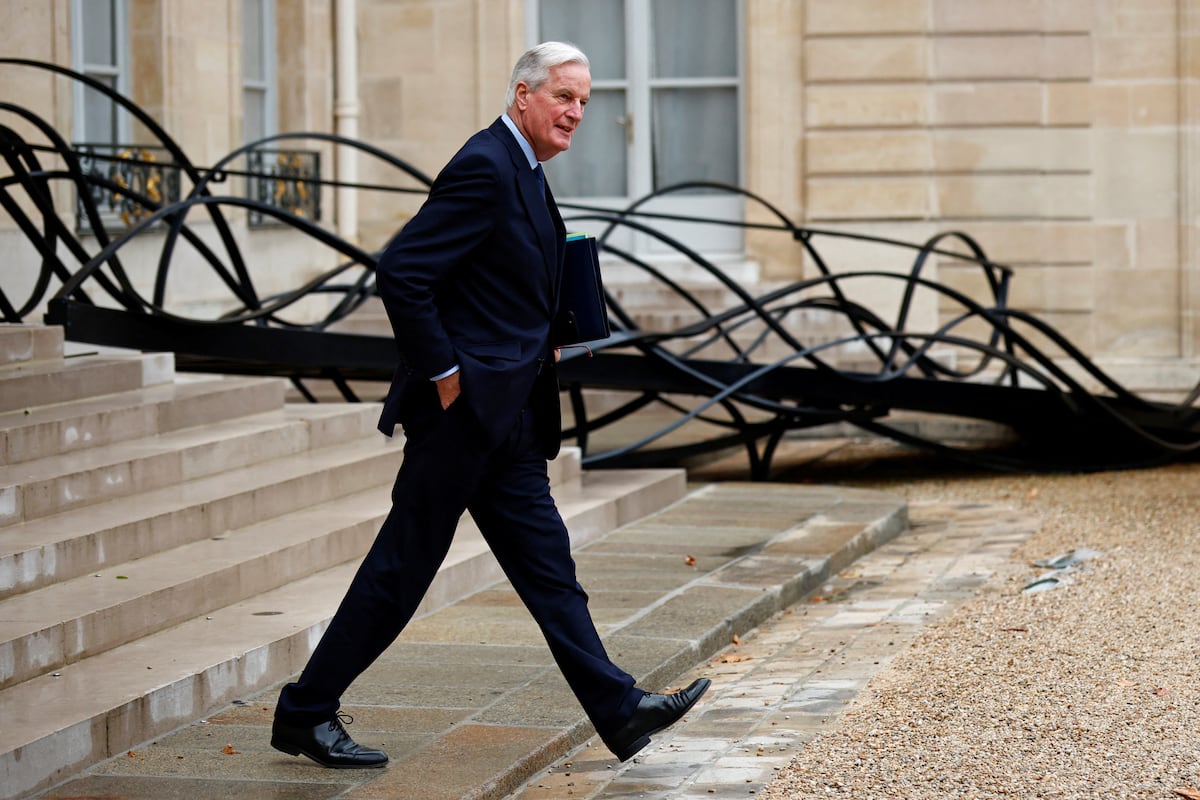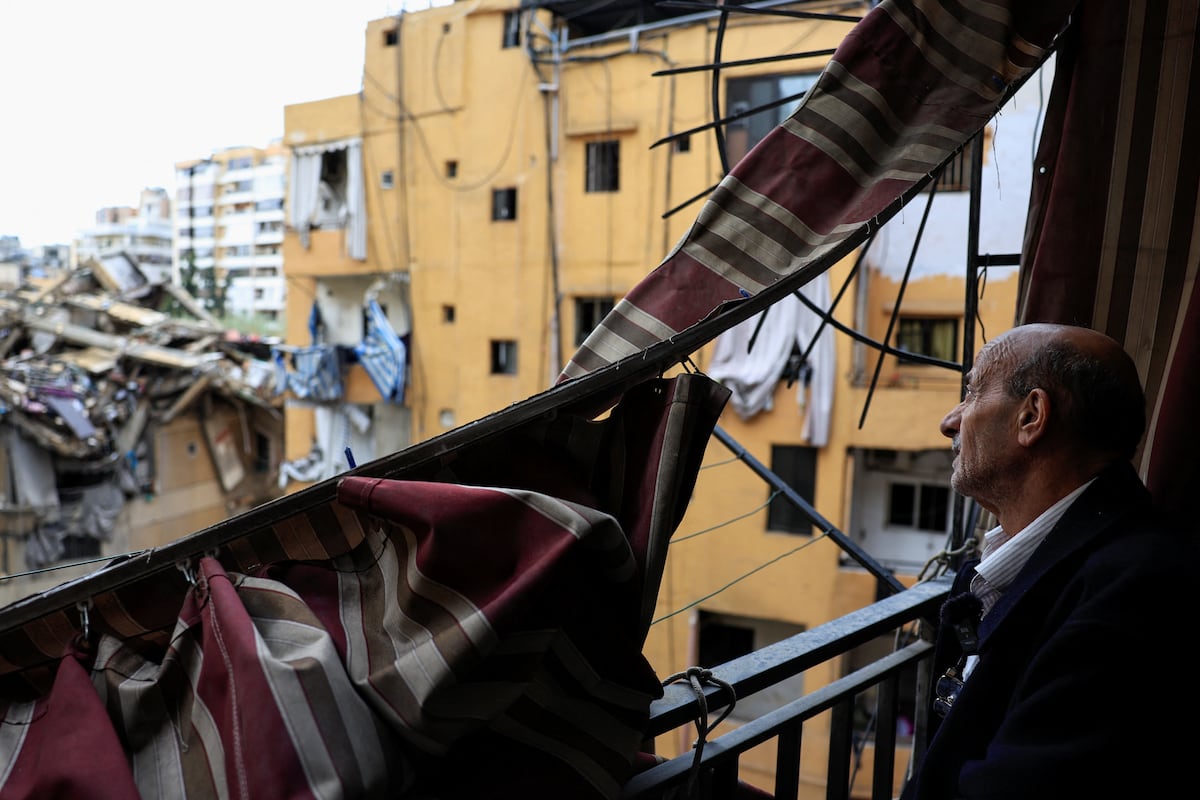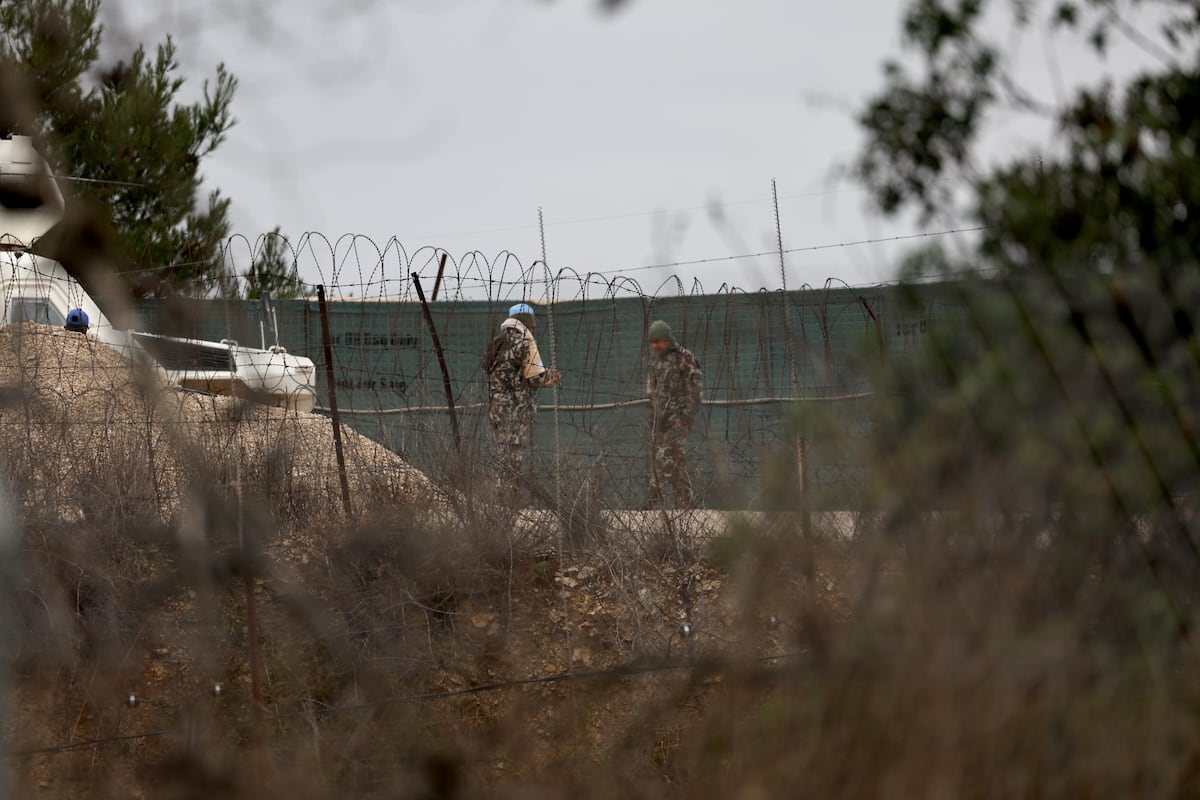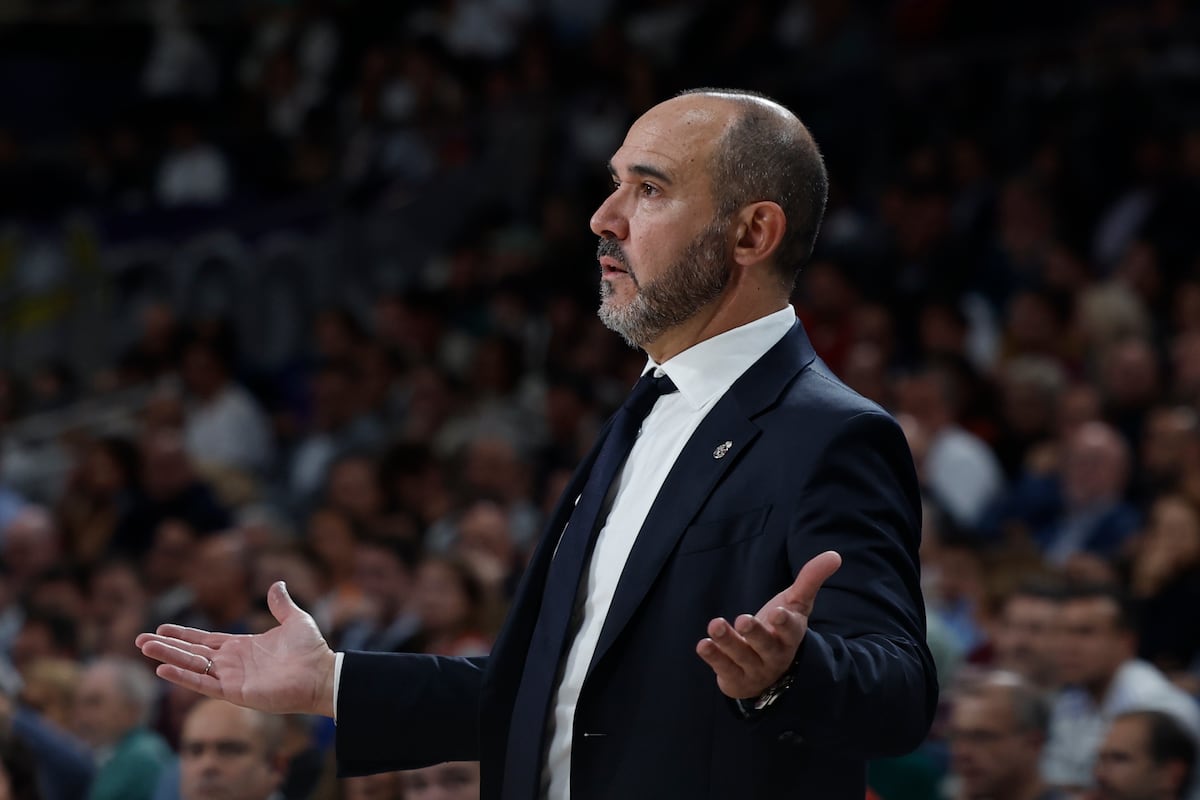Bilal Muneimana has just returned to his home in Dahiye, the southern suburb of Beirut that he left two months ago, when an Israeli missile fell so close that he felt his life was in danger, and he is not holding his tongue. He is extremely irritated by the frantic honking, the yellow Hezbollah flags and the triumphant signs he sees and hears from the window. “Victory, is everything that has happened to us a victory?” he criticizes. He has lived the two and a half months of open war as a “personal humiliation”: sleeping with his wife and three children in a school set up as a shelter, with a meager cloth hanging to protect his privacy from the rest of the displaced people with whom he shared classroom; grabbing belongings at night so that no one would steal them, going to work cold and with back pain… “I’m going to sell my house here and another one I have in the south. I’m leaving this country. “I am not willing to live through a war every ten years,” he says while clenching his fists without realizing it.
Tonight he won’t be able to sleep in his bed yet; Even during the day it is too cold. Like the rest of Dahiye, it remains without electricity. He has to wait for the owner of the private electric generator that powers the building (the bankrupt state electricity only provides a few hours a day throughout the country) to restart service. Her youngest daughter is also afraid to return. “She was too traumatized by the explosion.” [en la que Israel mató al líder de Hezbolá, Hasan] of Nasrallah. I haven’t heard the same since that day and my wife’s scar on her chest opened the seams,” says Muneimana in a tone between sad and angry.
His case shows the contrast between the public celebrations that marked the day and the procession that goes within some of the four walls of Dahiye itself. It is the fiefdom of Hezbollah, in which not a single block is seen without a building in ruins, and where Israel attacked for weeks to assassinate almost the entire leadership of the party-militia. Some buildings are smoking, due to the intense attack on Tuesday, the final Israeli fireworks before the ceasefire. Except for some bakeries that sell packaged bread, all stores remain closed. At the moment, there is no electricity anymore.
A bridge dominates the heart of the neighborhood. The lane towards Beirut looks empty. The other, towards Dahiye and further south, has an immense traffic jam. They are the cars and motorcycles of the thousands who return, some with mattresses on the roof. A man sticks a gun out the window and shoots in celebration. The sound of gunfire, usually from rifles, is constant. A young woman wearing a yellow Hezbollah scarf appears and distributes candy to the occupants of the vehicles, while giving them a smile and making a V for victory with her fingers.
Below, at street level, one color is imposed on the flags: the yellow of Hezbollah, mixed with the green and black of the praises of Hussein, the grandson of Muhammad revered in Shiite Islam. Snaking around on motorcycles or perched on the rubble of bombed buildings, they shout “Hezbollah!” or “We will answer your call, oh Hezbollah!” The same young people of the party ―or “of the resistance“,as they call themselves here – who tend to distrust any stranger, are debating today between posing for photos while celebrating or continuing to hide their identity, because, at the end of the day, everyone knows that what is coming is a truce, but not peace.
They seem ecstatic, as if the ceasefire that came into effect hours earlier was a “triumph” by a landslide and a “surrender” by Israel (two of the words they pronounce the most), rather than a kind of tactical retreat awaiting better days. It is summarized by one of its members, Ali, proud that his brother has fallen as a “martyr” stopping the advance of Israeli troops in the south and that Hezbollah has continued until the last moment “launching missiles towards Tel Aviv”, despite to the overwhelming technological and military superiority of an enemy that “everyone supports.” “We fight alone and on the ground; them, from the air. “They are cowards.” The militia, he says, did not want him to also join the hand-to-hand combat to prevent the same family from losing two male children. “Now, life is returning to normal, but things will happen in the future. And the next time we speak it will be in Palestine,” he says, suggesting that, by then, the State of Israel will have disappeared.
This speech is, precisely, the one that bothers not only Muneimana, but also Raghida. He is 70 years old and returned to his apartment at 10:00, with a maid who empties and cleans the refrigerator with bleach because everything inside has rotted. When he left, he excuses himself, there was still electricity and he thought it would be for “two or three days.” In the end it was two months, sleeping at his daughter’s house in the much safer inland mountains.
Therefore, the first thing he does is apologize for breaking the rules of Arab hospitality and not offering coffee to visitors: there is no electricity or gas to prepare it. Then, he charges at the young people who shoot into the air. “What victory are these celebrating? Everyone knows that Hezbollah has been weakened. They act as if it were [la guerra entre Israel y Hezbolá] in 2006. Now that was a victory. Not this,” he says. Raghida, with her children scattered across three continents, remembers that she forbade one of them from joining the movement’s youth. “It’s one thing to defend your home. I’d be the first to grab the rifle if they came to my door. But die far away? So that? If they want, go ahead. “My son, no.”
Judur Muallem, 61, and his wife, Imam, 49, represent the complete opposite of Raghida. They smile, relieved to see that their house is still standing (they were not at all clear about it) amidst a destruction that does not at all equate to an Israeli victory. “They have everything. Tanks, planes and the help of intelligence services from around the world. Us, just some small rockets and our people. Even so, we have managed to get them to surrender,” summarizes Imam while cleaning the floor.
Since they left, there remains – under a tapestry with the word God – a portrait of Hasan Nasrallah, the revered leader of Hezbollah for decades who Israel killed in September a few blocks from here. “It’s the only thing that breaks our feeling of victory. Still, for me it’s like I’m still alive. I know he’s dead, I know. But his figure is still present,” says Imam.
Muallem explains why he did not mind spending seven weeks at a friend’s house far from Dahiye and why he believes that Hezbollah has once again emerged victorious from the onslaught. “You’re European, right?” he begins. “Didn’t Hitler destroy Europe, but didn’t he win World War II? It’s part of the fight. You can’t claim victory if your house is intact. If any army in the world suffered an attack like that of the beepers, and its first and second line of command were eliminated, it would disappear. “Hezbollah managed to regroup and continue fighting and launching missiles.”
He is not worried about the future. In 2006, remember, Israel also promised to impose its law on the other side of the border if Hezbollah regrouped, which ended up happening. “Now, they say it will. Well, he says one thing and we say another,” he says with a smile: “Hezbollah is not a strange entity, like an army, to be removed from a place. It’s the people who live there. It is their land. And here we do not have a State, an army to defend ourselves from Israel, which whenever it is involved there are problems. That’s why there needs to be resistance. [Hezbolá]. If not, we would have already disappeared.”

